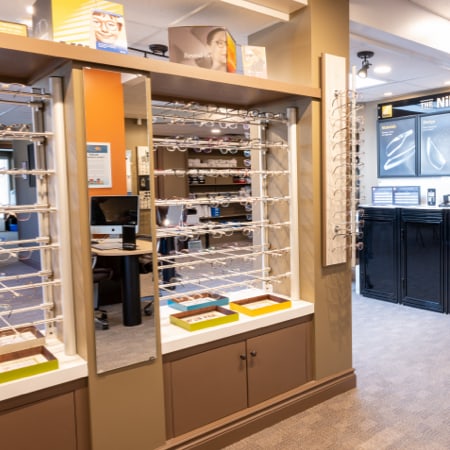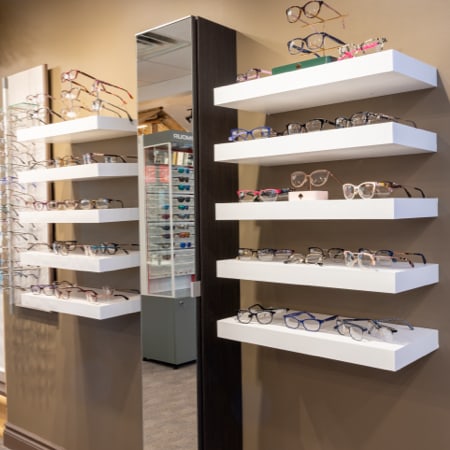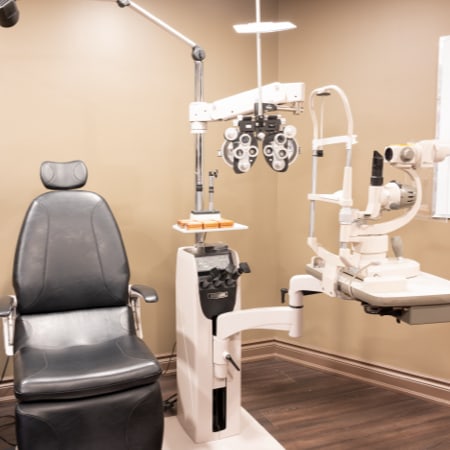Macular degeneration is an eye condition that often surfaces in conversations about aging and eye health, particularly due to its status as a leading cause of vision loss among older adults. Affecting millions of Canadians, understanding the hereditary aspects of macular degeneration can help influence both prevention strategies and management approaches.
Macular degeneration is a hereditary condition, meaning that genetics play a role in its development. People with a family history of this eye condition are at a higher risk of experiencing it themselves.
What Is Macular Degeneration?
Before we explore the hereditary aspects, we need to understand what macular degeneration is. This eye condition affects the macula, the central part of the retina responsible for sharp, detailed vision. There are 2 main types:
- Dry macular degeneration: The more common form, characterized by the thinning of the macula.
- Wet macular degeneration: Less common but more severe, involving abnormal blood vessel growth under the retina.
Both types primarily affect central vision, which is essential for activities like reading, driving, and recognizing faces.
The Hereditary Component
Genetics often play a significant role in determining the likelihood of developing certain disorders when discussing hereditary eye conditions. Studies suggest a strong genetic component in macular degeneration, particularly for age-related macular degeneration (AMD).
AMD is a leading cause of vision loss in older adults, and research has identified specific genetic variations associated with an increased risk of developing this condition. A family history of AMD can significantly increase your risk, as inherited genetic factors may predispose people to retinal damage over time. Understanding these genetic influences can help in early detection and potentially guide preventive strategies or treatments.
Genetic Factors
Research has identified several genes associated with macular degeneration. The most notable ones are the complement factor H (CFH) gene and the age-related maculopathy susceptibility 2 (ARMS2) gene. Variations in these genes can increase the likelihood of developing AMD.
- CFH gene: This gene regulates inflammation in the immune system. Variants of the CFH gene can lead to an overactive immune response, contributing to the development of AMD.
- ARMS2 gene: Located on chromosome 10, variations in this gene are strongly linked to an increased risk of AMD. The exact function of ARMS2 is still under investigation, but it’s believed to influence the integrity of the retina.
Having these genetic variants doesn’t guarantee the development of macular degeneration. It simply increases the risk.
Environmental Factors
While genetics can play a role, they aren’t the sole players in macular degeneration. Environmental influences, such as prolonged exposure to UV light, when combined with genetic predisposition, can significantly influence the onset and progression of the disease.
Lifestyle choices, therefore, play a vital role in either mitigating or exacerbating the risk. To maintain optimal eye health, it is important to eat a healthy diet rich in antioxidants and have regular eye check-ups.
Lifestyle Influences
- Smoking: Smokers are 4 times as likely to develop AMD compared to non-smokers.
- Diet: Diets rich in omega-3 fatty acids, leafy greens, fish, and nuts can have protective effects.
- Sun exposure: Prolonged UV exposure without protective eyewear can damage the retina, contributing to AMD.
- Exercise: Regular physical activity can lower the risk by improving circulation and reducing inflammation.
Managing the Risk
Understanding the hereditary and environmental factors can help manage and reduce the risk of macular degeneration.
Genetic Testing
If you have a family history of AMD, consider genetic testing. While not a definitive prediction tool, it can offer insight into your potential risk, allowing for proactive management.
Regular Eye Exams
Regular eye exams are important for your eye and overall health. They allow for early detection and intervention, which can slow the progression of the disease.
Book Your Next Appointment
While macular degeneration has a hereditary component, it doesn’t mean those with a family history are destined to develop the condition. A combination of genetic awareness and lifestyle choices can significantly influence the risk and management of this eye condition.
If you’re concerned about hereditary eye conditions like macular degeneration, make an appointment with Orillia Optometry for guidance tailored to your specific needs. Together, we can take proactive steps to protect your vision.















